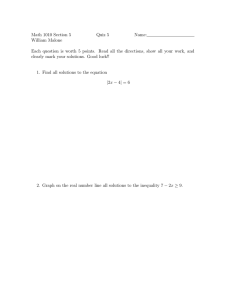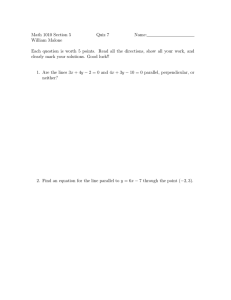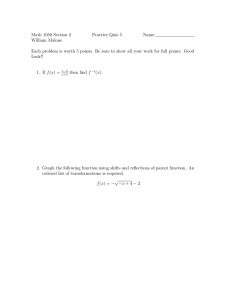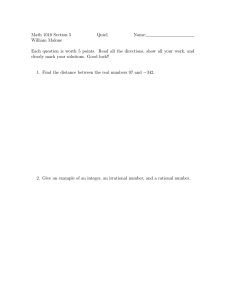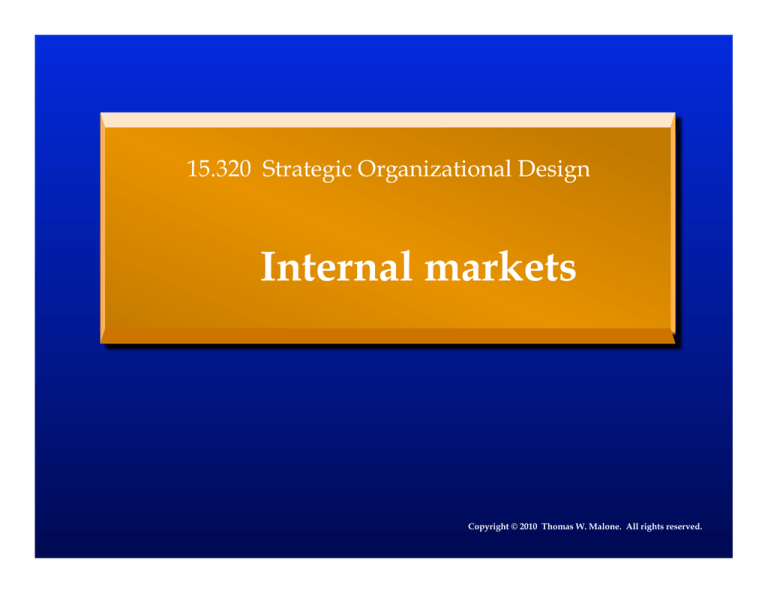
15.320 Strategic Organizational Design
Internal markets
Copyright © 2010 Thomas W. Malone. All rights reserved.
How can activities be linked?
• Networks
– People are motivated to cooperate for various reasons
(trading favors, cultural expectations, etc.)
• Hierarchies
– People are motivated to do what managers tell them
• Markets
– People are motivated to make mutually beneficial
exchanges involving some kind of currency
Copyright © 2010 Thomas W. Malone. All rights reserved.
Types of markets
• Prediction markets
• Resource markets
– External
» Outsourcing
– Internal
» Transfer pricing
» Internal markets
Copyright © 2010 Thomas W. Malone. All rights reserved.
Why are internal markets
becoming more desirable?
• Markets often have more efficient and flexible
results than hierarchies.
• Markets can use more information and more
people s minds simultaneously than
centralized hierarchies.
• IT lowers the costs of running markets and thus
makes them more feasible in more situations.
Copyright © 2010 Thomas W. Malone. All rights reserved.
Market prices for product futures
Time (weeks)
Product
Location
(100 units)
0
Bid
1
2
Ask Bid Ask Bid Ask …
A
1
2
3
4
5
10
11
A
2
5
8
6
7
10
11
B
1
10
11
10
11
12
13
B
2
10
11
10
11
12
13
…
…
Copyright © 2007 Thomas W. Malone
When are internal markets desirable?
Structure
Internal
Markets
Strengths
• Efficiency
Maximizing your own benefits, results in
efficient overall allocation (the invisible
hand)
• Flexibility
More information and minds applied to
figuring out how to adjust
Individual variation can be
accommodated
• Motivation
People are often more motivated and
creative when they are rewarded directly
for the results of their own actions
Weaknesses
• Incentive problems
Sometimes agreements that would be good
overall aren’t in the individual interests of
one or both parties involved.
• Communication
Lots of communication usually needed to
find and compare alternatives and to
negotiate agreements.
Copyright © 2009 Thomas Malone. Based on Thomas W. Malone, The Future of Work, Boston: Harvard Business School Press, 2004, pp. 104-108.
Copyright © 2010 Thomas W. Malone. All rights reserved.
When should you decentralize?
Potential benefits
Potential costs
• Motivation
Difficulties in…
• Creativity
• Making decisions quickly
• Many minds on same
problem
• Managing risk and quality
• Flexibility
• Individualization
• Exploiting economies of scale
• Sharing knowledge
effectively
Copyright © 2010 Thomas W. Malone. All rights reserved.
MIT OpenCourseWare
http://ocw.mit.edu
15.320 Strategic Organizational Design
Spring 2011
For information about citing these materials or our Terms of Use, visit: http://ocw.mit.edu/terms.

